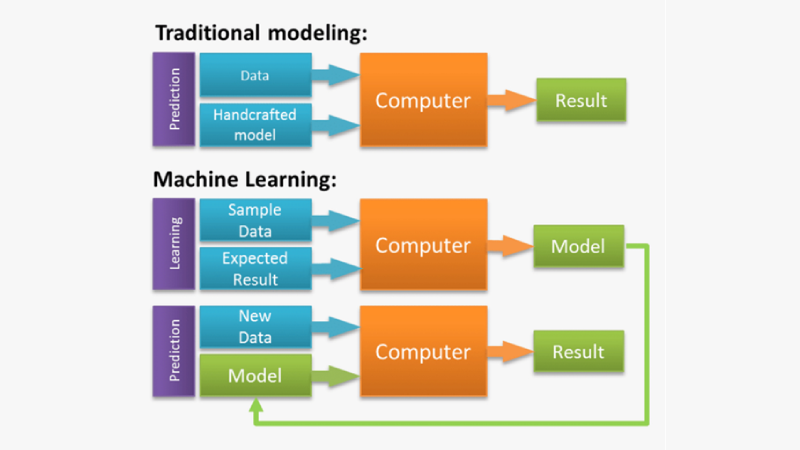Institution news
However, there are several blockers that most organisations (including engineering) face in adopting AI technologies, as noted by an O’Reilly survey in 2020. The top three blockers on the published list include:
- Lack of access to quality data
- Lack of ideas for leveraging AI in business to drive automation
- Lack of digital skills to implement AI
What contributes to these challenges is also a lack of understanding of what AI really is, how it works, its capabilities, and limitations.
AI in its simplest form is a mathematical function that can accept a set of input arguments and return a set of outputs. Not too different from a typical excel function that computes some value for you based on some inputs.
You can build this AI function by running a modelling algorithm on your data. Depending on patterns present in your data, different training algorithms may prove suitable to build an effective model.
If you look at language models, they are essentially large AI models that computationally managed to capture and represent the meaning and context of sentences within textual data by computing a set of numbers.
Now what makes AI different from a typical excel function is that you don’t write it out yourself. You let the computer work it out for you using a training algorithm that iteratively fine-tunes the function’s parameters to match a set of inputs to a set of outputs using data. When the function is fine-tuned or “trained”, you have an AI model which you can use to compute output predictions on some unforeseen inputs, such as forecasting future measurements based on captured historical measurements.
Figure 1 captures the concept of AI models vs traditional models quite well.

Figure 1: Traditional modelling vs machine learning (AI)
You will often find that engineering formulas need to make assumptions to simplify calculations. With AI you can capture real world patterns to go beyond formulas that take variety of factors into account. Luckily, the rise of Internet of Things (IoT) and remote condition monitoring (RCM) technologies can capture sufficient data to train new AI models for novel engineering use cases.
Unfortunately, since engineering industries work with specialist domain expertise, data, tools and software, off-the-shelf AI tools remain limited. In addition, the AI ecosystem of tools is not yet as mature as other industries like as finance, marketing, and tech.
What this means, is that as engineers we need to learn the underlying technicalities to implement and build custom AI tools ourselves. This involves learning new tools such as Python to add to our toolkit of excel, FEA, CAD and other software that we use daily. With Python we can build our own custom AI models and leverage wider variety of tools available.
The good news is that you don’t have to do it all by yourself. IMechE now provides new courses in the exciting field of AI for engineers who want to learn the foundations of AI in engineering and Python programming to name a few. Later in the year, we will be releasing new courses related to this field on data science and data engineering to cover other aspects of AI modelling, statistics, data storage and processing.
Overall, the future of engineering seems exciting as AI will be unlocking new opportunities to innovate and may soon become common in engineering workflows, used like any other tool such as Excel, CAD, or FEA software. We look forward to sharing this journey with you.
Ali Parandeh CEng
IMechE trainer
The Institution recognises the critical role AI will play in shaping the future of engineering. That’s why we have collaborated with industry experts to develop four new AI-focused courses, ensuring you receive the most relevant and practical training available.
AI for engineers
Foundation Python for mechanical engineers
Building AI models with engineering datasets
Data science and statistics for engineers
For more information, or to discuss specific training requirements, contact us at training@imeche.org or by calling + 44 (0)20 7304 6907.